- Home
- slideshows
- miscellaneous
- 9 science-backed ways to lose weight without going on a diet
9 science-backed ways to lose weight without going on a diet
Stay hydrated. If you hate drinking water, zest it up with citrus or drink it carbonated (ideally without adding empty calories into your diet).

Whatever you drink, it's probably best to steer clear of artificial sweeteners.

Scientists are starting to discover that slurping fake sugar doesn't give people a free pass when it comes to obesity and diabetes.
Scientists studying the blood vessels of rats have discovered that while sugar and artificial sweeteners act in very different ways inside the animals' bodies, they can both up the odds of developing obesity and diabetes.
The researchers think that artificial sweeteners may mess with the way our bodies process fat.
Aim for 7 to 8 hours of shut-eye per night.

Most of us like to think we can operate well without a full night's sleep. But neuroscientist and sleep expert Matthew Walker says that's wrong. According to Walker, lack of sleep is literally killing us.
And it makes us eat more bad food, too.
Research published in 2013 in the journal Nature Communications revealed that sleep-deprived eaters are more likely to reach for high-calorie foods and gain weight than well-rested people are. That's because being sleepy also snoozes the region of the brain that helps tell us when we're full.
Taking time to enjoy breakfast and lunch is a great way to avoid overeating later in the day. Definitely eat before you risk getting irritable and impulsive.
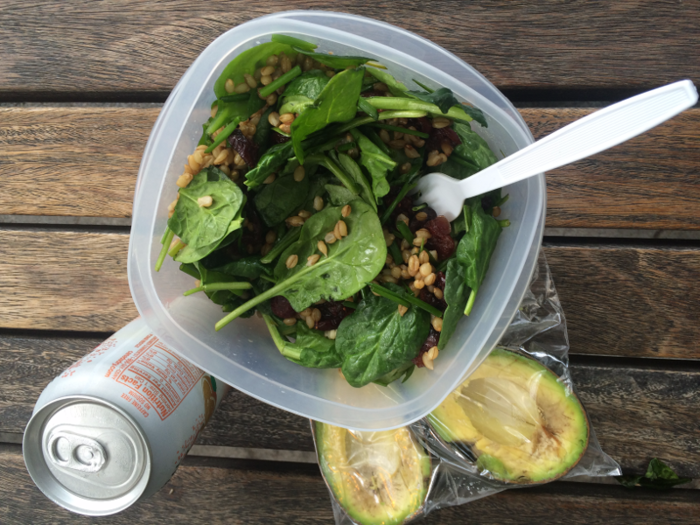
The advice is almost a cliche at this point, but more and more research still suggests that breakfast-eaters stay trimmer and avoid putting on dangerous belly fat compared to people who don't eat in the morning.
Recent Mayo Clinic research found that people who skip breakfast put on roughly five to eight more pounds in a single year than regular morning eaters.
Ewoldt says your breakfast doesn't have to be big, but you should eat something to help avoid impulsive hunger-fueled binges of fatty or sugary food.
"When we're hungry, we're going to go with what's quickest and easiest," he said.
Often that translates to more highly processed, high-calorie foods with little nutritional value.
Consider incorporating a mid-morning and mid-afternoon snack into your daily routine.
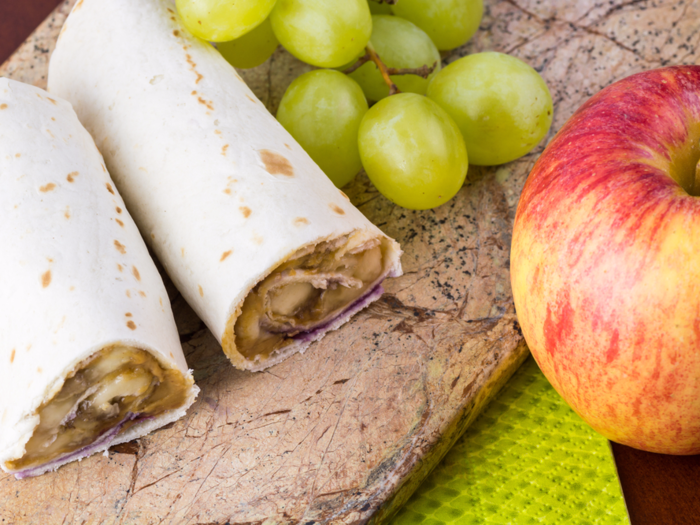
"If you have a small, healthy, filling snack, you're still hungry for lunch, you're just better able to manage choices," Ewoldt said.
He often goes with a cheese stick, a banana, or a mid-afternoon piece of fruit.
Plan ahead by getting your veggie chopping and meal prepping done before you're hungry.
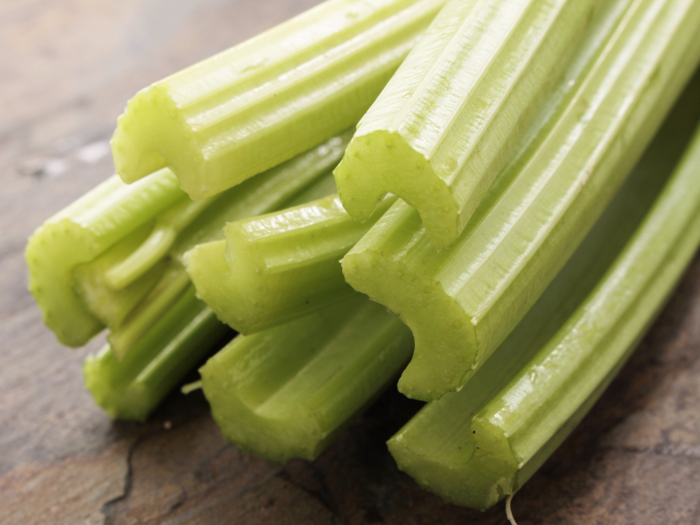
When we're hungry, it can be hard to say no to processed foods, which are bad for your waistline and may cause cancer.
Ewoldt says having a daily plan "makes healthy eating a heckuva lot more attainable."
He packs his lunch for work at least four days a week, and picks out foods that will keep him satisfied for hours. He stocks up on chicken patties, crunchy vegetables and hummus, as well as guacamole spreads to stay full during the workday.
Make your days a little nuttier.
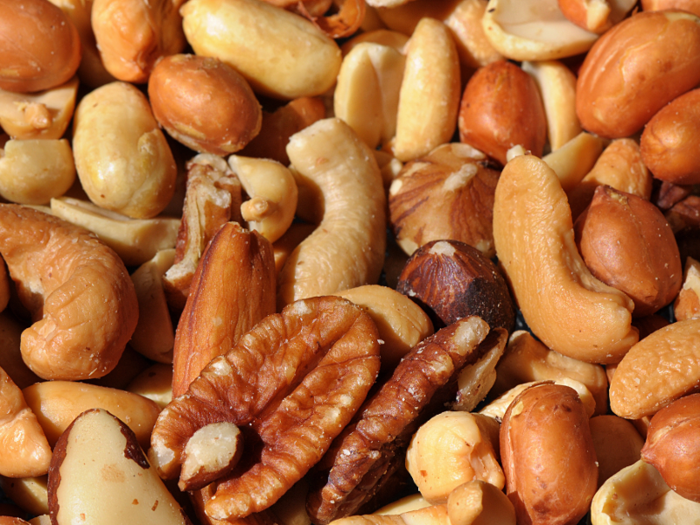
Nuts are fatty, wonderful way to stave off cravings between meals. Recently, researchers have discovered they're also a potentially life-saving protein source, too.
A study of more than 81,000 people in North America found that people who ate just a handful of mixed nuts or seeds a day reduced their risk of developing heart disease and that getting a little nutty also helped people lower the "bad" LDL cholesterol levels in their bodies.
Work out in the morning.

Studies have shown that people who work out in the morning on an empty stomach can burn up to 20% more body fat during their workouts, since they have to use more stored-up fat as fuel.
Some evidence suggests that exercising on an empty stomach won't increase your appetite (though the scientists behind that research did give study participants a chocolate-flavored recovery drink right after their morning workouts were through).
The benefits of regular workouts don't end at our waistlines. Exercise has also been shown to provide a wonderful smorgasbord of health benefits: it can help stave off depression and keep your heart, lungs, and mind healthy to a ripe old age.
Chew more filling whole grains like quinoa and brown rice.
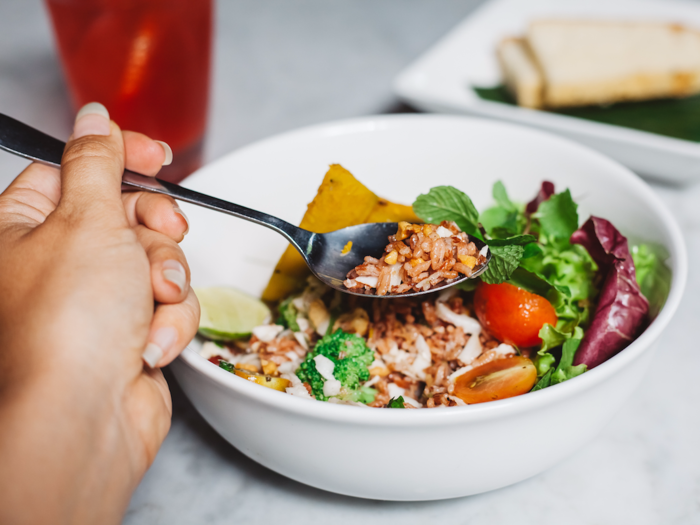
Whole grains like oats, cracked wheat, and whole-wheat bread are a great way to satisfy your appetite and stay full. Plus, they're also rich in potassium, iron, and B vitamins.
These fiber-rich foods take more time for the body to break down, and can fuel us for hours at a time. That makes them a better choice than processed, nutrient-stripped grains like white breads, floury cakes, and white rice.
Enjoy some fruit
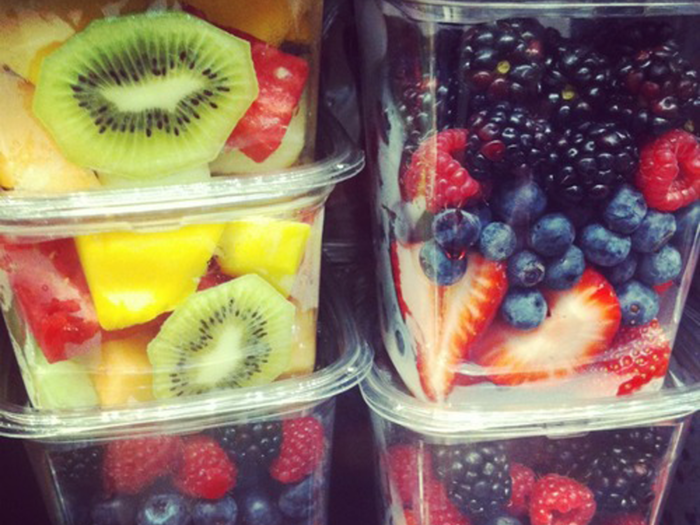
Fruits are another great way to incorporate hunger-satisfying fiber into your diet. Plus, they're a great source of vitamins and water, and can even help our DNA stay healthy.
Ewoldt likes to sprinkle some berries onto Greek yogurt in the morning for a simple, quick breakfast.
Treat yourself sometimes
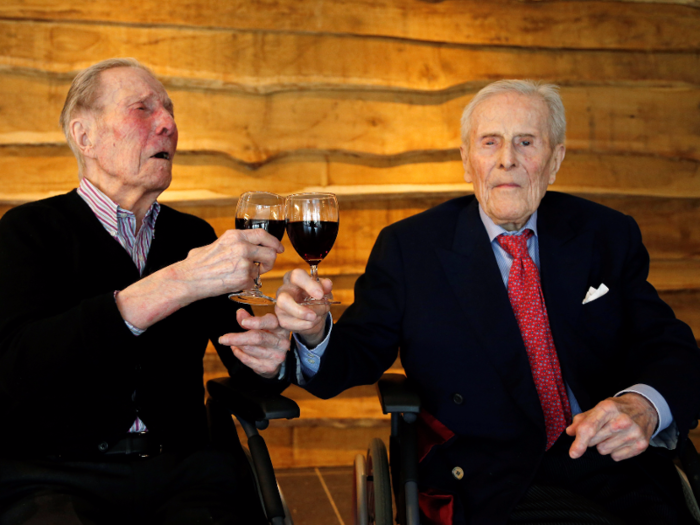
If there's one thing dietitians and food experts agree on, it's that deprivation and villainizing "bad" foods leads to binging and more diet fails.
So indulge once in a while, Ewoldt says, as long as it's in moderation. Love chocolate cake or red wine? Go ahead, have a little now and then.
He suggests wine lovers serve themselves one 5-ounce glass (that's about a fifth of a bottle) and "really sip and really enjoy it."
Popular Right Now
Popular Keywords
Advertisement